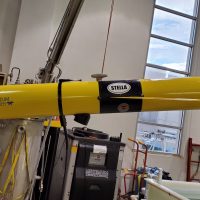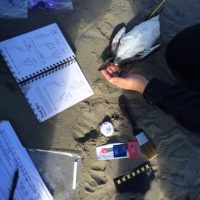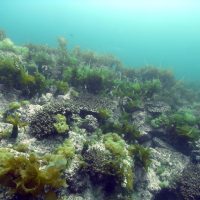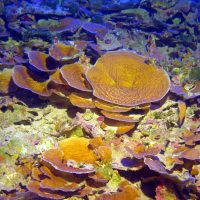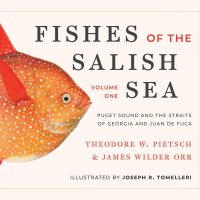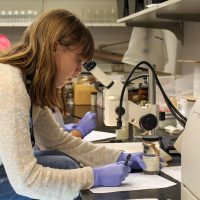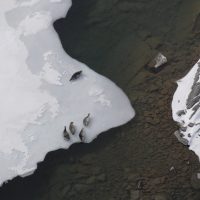Filter Results
Researchers deploy new tech to explore depths of Gulf of Mexico
A multi-institution team consisting of the University of Washington School of Aquatic and Fishery Sciences (UW SAFS) Professor John Horne will deploy experimental technology next week to explore the deep scattering layers of the ocean. In addition to Horne, the UW team includes Ross Hytnen Jr. and summer intern Raymond Surya (a JISAO intern from the University of Michigan). Horne’s lab at SAFS uses active acoustic technologies to count and characterize aquatic organism distributions and dynamics throughout the world.
Read moreWhat motivates people to join — and stick with — citizen science projects?
One of the most established hands-on, outdoor citizen science projects is the University of Washington-based Coastal Observation and Seabird Survey Team, COASST, which trains beachgoers along the West Coast, from California to Alaska, to monitor their local beach for dead birds. With about 4,500 participants in its 21-year history and roughly 800 active participants today, COASST’s long-term success is now the subject of scientific study in its own right. What makes people join citizen science projects, and what motivates people to stick with them over years?
Read moreCoral reefs shifting away from equator, new study finds
Coral reefs are retreating from equatorial waters and establishing new reefs in more temperate regions, according to new research published July 4 in the journal Marine Ecology Progress Series. The researchers found that the number of young corals on tropical reefs has declined by 85% — and doubled on subtropical reefs — during the last four decades.
Read moreSpring 2019 Awards
Each year, our students, faculty and staff win regional, national, and international awards. Please join us in congratulating the latest group of award winners.
Read moreSAFS Spring / Summer 2019 Newsletter – Director’s Message
The six months since we published the previous issue of the newsletter have been exhilarating, exhausting, and just plain amazing as I hope you will see from these articles.
Read moreMark Scheuerell Joins the SAFS faculty
Mark Scheuerell is the newest member of the SAFS faculty. He joins SAFS as the Assistant Unit Leader, Fisheries, in the Washington Cooperative Fish and Wildlife Research Unit (WACFWRU), and an Associate Professor.
Read moreDeep submersible dives shed light on rarely explored coral reefs
Just beyond where conventional scuba divers can go is an area of the ocean that still is largely unexplored. In waters this deep — about 100 to at least 500 feet below the surface — little to no light breaks through.
Read more“Fishes of the Salish Sea” Book Release
“Art and science collide magnificently in this monumental three-volume celebration of the 260 species of fishes that infuse the inland marine waters of Washington State and British Columbia, with hidden beauty, remarkable diversity and intriguing ways of living. This long-awaited work is a must-have not just for serious scientists and devotees of exquisite natural history artistry, but for any and all who find joy in exploring the wonders of nature.”―Sylvia Earle, National Geographic Explorer in Residence, Founder, Mission Blue
Read moreTraining the Next Generation of Women Scientists
In a small room on the sub-level of the Fisheries Teaching and Research Building, families and friends crowd together, not unlike the countless jars of fish that pack the nearby shelves. In the center of the room is a table arranged with colorful posters and a group of girls who are excitedly answering questions. The eager onlookers are here to support their students, daughters, and friends, who are taking part in the Burke Museum’s Girls in Science (GiS) program. This science-fair style celebration is an opportunity for this quarter’s group of high school girls to present their findings after a rigorous six-week course where they identified “new” species.
Read moreChemical records in teeth confirm elusive Alaska lake seals are one of a kind
Hundreds of harbor seals live in Iliamna Lake, the largest body of freshwater in Alaska and one of the most productive systems for sockeye salmon in the Bristol Bay region. These lake seals are a robust yet highly unusual and cryptic posse. Although how the seals first colonized the lake remains a mystery, it is thought that sometime in the distant past, a handful of harbor seals likely migrated from the ocean more than 50 miles (80 kilometers) upriver to the lake, where they eventually grew to a consistent group of about 400. These animals are important for Alaska Native subsistence hunting, and hold a top spot in the lake’s diverse food web.
Read more